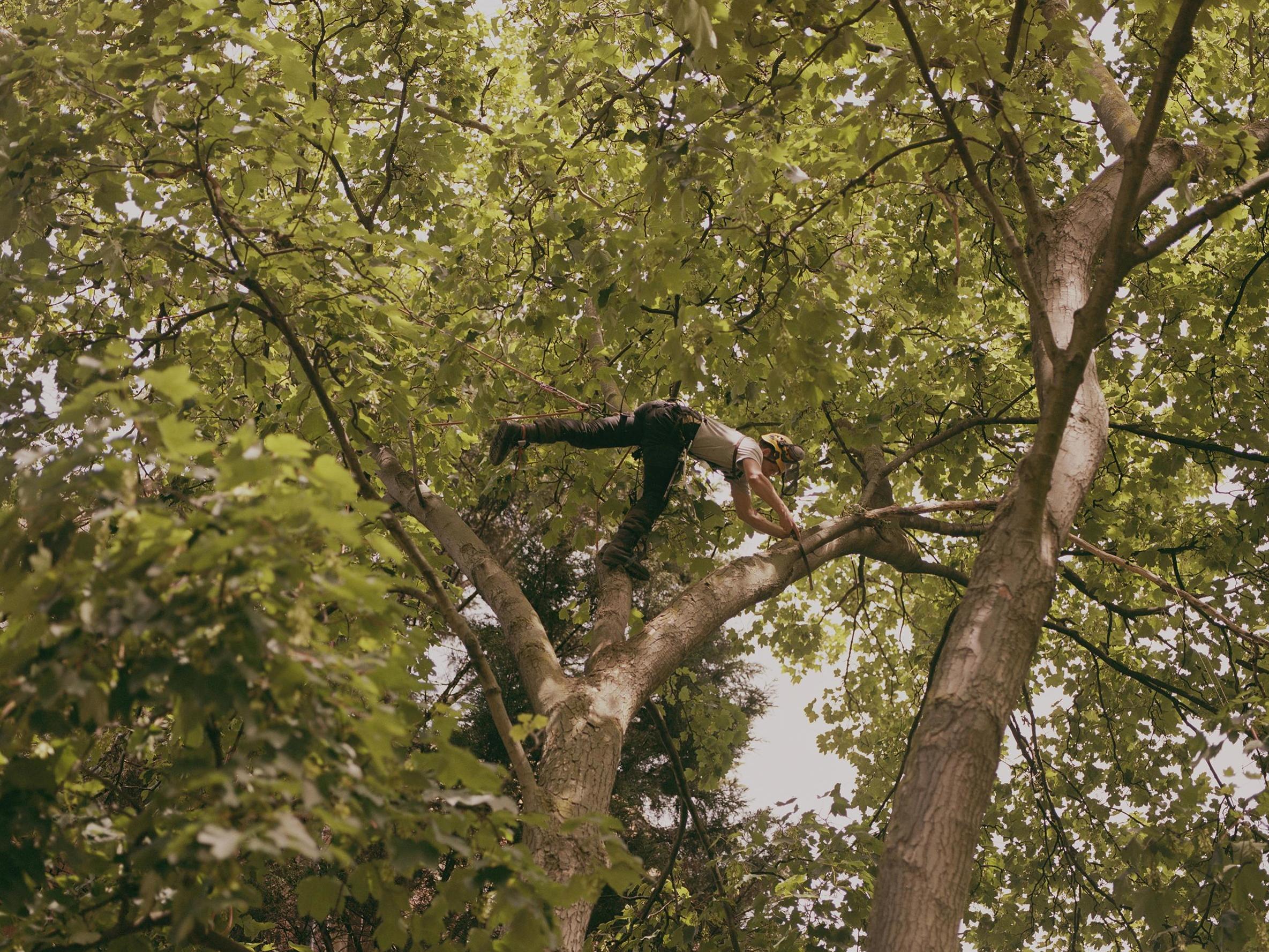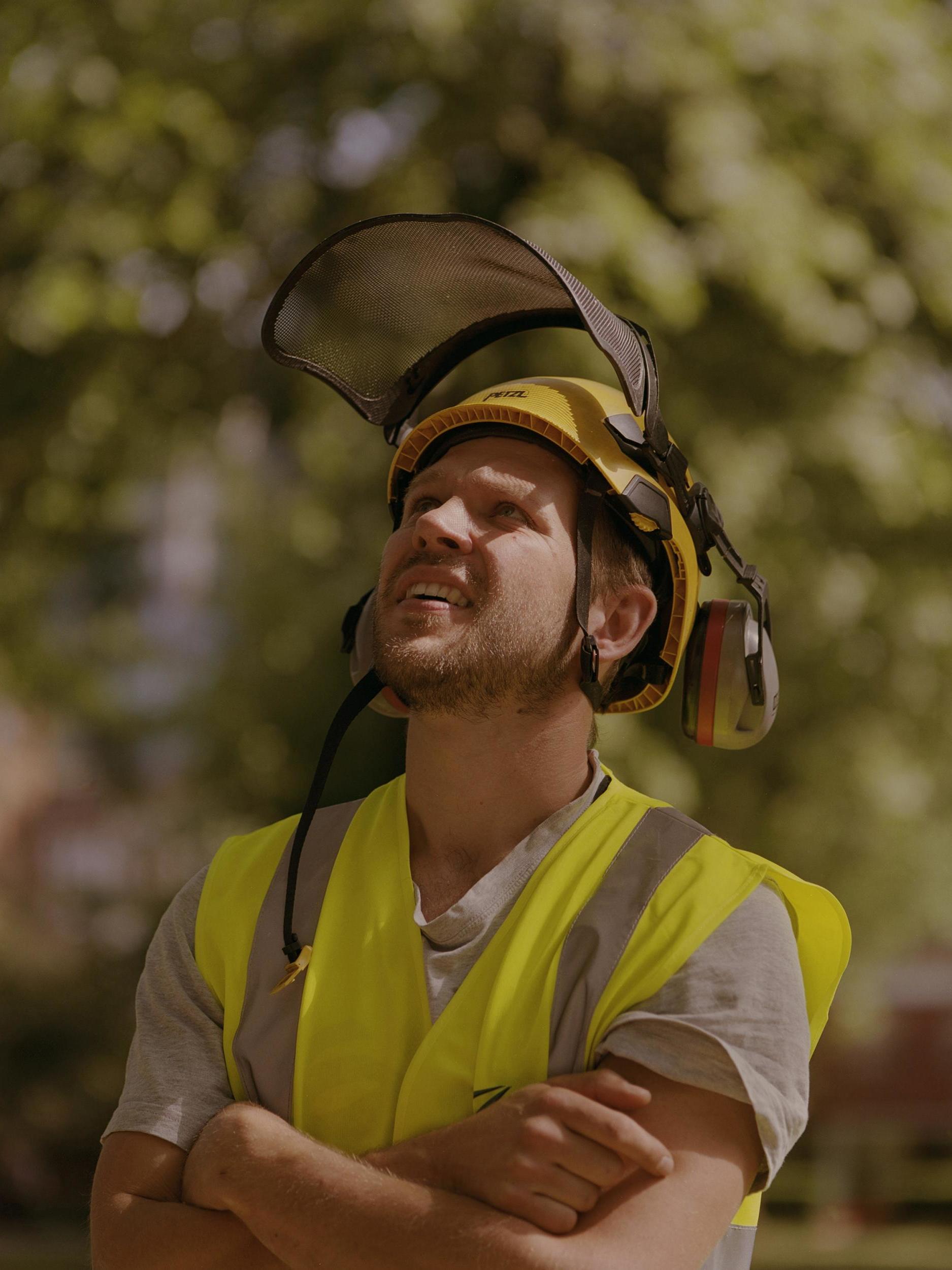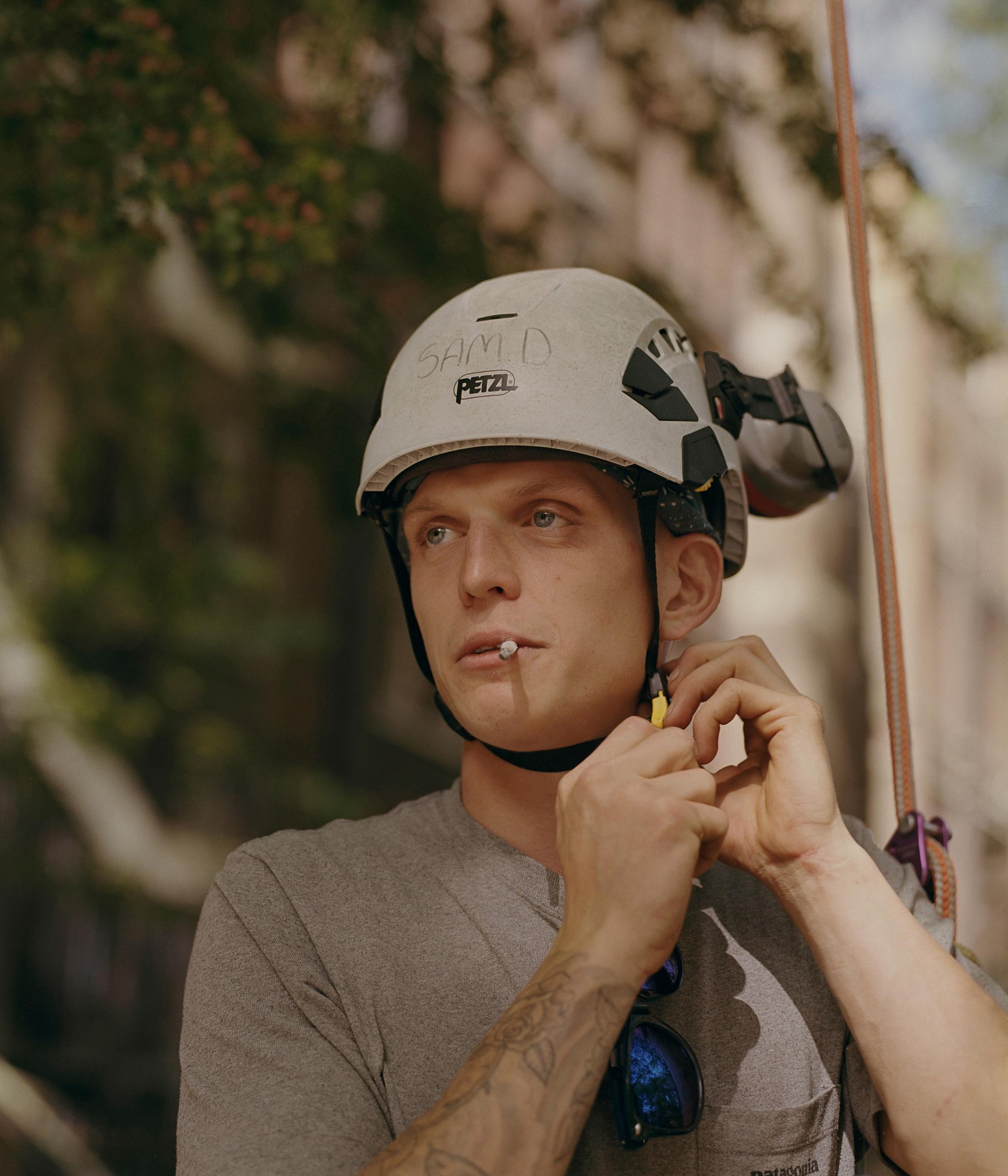‘It’s social distancing at its finest’: The tree surgeons maintaining London’s parks during lockdown
Adam Rendell and Sam Davis have kept the capital’s outdoor spaces safe for others to enjoy... just don’t ask about the hose, writes Christine Spolar

Your support helps us to tell the story
From reproductive rights to climate change to Big Tech, The Independent is on the ground when the story is developing. Whether it's investigating the financials of Elon Musk's pro-Trump PAC or producing our latest documentary, 'The A Word', which shines a light on the American women fighting for reproductive rights, we know how important it is to parse out the facts from the messaging.
At such a critical moment in US history, we need reporters on the ground. Your donation allows us to keep sending journalists to speak to both sides of the story.
The Independent is trusted by Americans across the entire political spectrum. And unlike many other quality news outlets, we choose not to lock Americans out of our reporting and analysis with paywalls. We believe quality journalism should be available to everyone, paid for by those who can afford it.
Your support makes all the difference.They call themselves tree surgeons. But swinging from branch to branch and taking turns slicing through trails of dead wood at neck-craning heights, Adam Rendell and Sam Davis look more like urban avengers who have figured out how to vanquish the coronavirus lockdown and still get a paycheck.
“It’s social distancing at its finest,” Davis says after an hour amid the treetops of St Pancras Gardens, his workspace for the moment in one of London’s greenest boroughs.
When Britain’s 23 March lockdown began, Davis, a 29-year-old former bartender, saw friends working in restaurants and in the film industry suddenly put on furlough. Rendell, a 27-year-old who walked away from an IT job three years ago, said co-workers at his former office endured pay cuts and were told to work from home.
The pair consider themselves lucky to practice a trade that, by its very nature, keeps them safe from crowds and contagion.
Britain is beginning to loosen its coronavirus restrictions. But throughout, the green spaces of London, and those who tend them, have been considered essential. The vast royal parks – Hyde, Regent’s, St James’s – and the neighbourhood gardens, such as that of St Pancras Old Church, next to the rumbling international rail yard, have offered a refuge to city residents with more time than usual, and perhaps more need, for calm and pleasant places.
The two tree-trimmers have been deployed by City Suburban Tree Surgeons and contracted by the Borough of Camden. Their mission on this crisp sunny day: to winnow a gnarly mottled plane tree with leaves and limbs too near the windows of a mental health hospital on the park’s far edge.
Wearing trousers heavy with Kevlar to defang any wrong move with a chain saw, Davis straps on a leather belt laden with ropes and spring-loaded metal shackles, tightens a helmet mounted with earmuffs and prepares to shinny up a line tied to a branch high in the sky.

And then someone begins to scream. And scream again.
Rendell, standing guard near the tree’s roots, glances over. The arborists are certainly not the reason for the outburst, which seems to come from inside the hospital, but two months of lockdown have left people on edge.
Rendell says most of those cooped at home have laughed or waved when seeing the two of them bobbing about the branches near their dwellings. Still, a few weeks ago, an irate homeowner turned a garden hose on them. They had to call the police.
“I think the man basically resented that we were outside, or cutting the tree, or maybe being able to work,” Rendell says. “Sometimes, people can be a little odd.”
He laughs at his own early wrong assumptions about what serious tree work would involve: “I was expecting to be in the Essex countryside, listening to birdsong, walking in nature. Then you quickly realise: our job is really where trees and people interact. It is hard, very hard, and exhausting work. I’ve been up in a tree for six hours.”
I only had a vague idea what the work would be, except I knew I wanted to work outside
In nearby St George’s Gardens, a tomb-studded field a five-minute walk away, James Brown has been tending to the geraniums, lavender, poppies and peonies for nearly a dozen years. He has worked every day of the lockdown and notices a perceptible coronavirus effect.
The Chelsea Flower Show, London’s sumptuous gardening festival that draws in half a million people, was cancelled this spring for the first time since the Second World War. But people who may never have splashed out on a pricey ticket to the show are strolling local parks with fresh intention. They download apps to identify spring blooms and squint at whatever chirps from the trees.
“People are getting in touch with the gardens,” Brown says. “They used to just walk through. Now they are smelling the flowers. Taking photos of the flowers. It’s like they are really seeing these places for the first time.”
Rendell and Davis don’t take much notice of passersby – except to warn of falling branches – though they are mindful of the lush history within St Pancras.
There’s the Soane family mausoleum, credited as the inspiration for the iconic London phone booth, and an impressive ash known as the Hardy Tree, its base swaddled in tombstones by novelist and poet Thomas Hardy, who moved graves to help make way for the railway. The young men are surprised to learn of a wooden bench in the centre of the park where The Beatles posed for photos on an infamous Mad Day Out in 1968.
The tree surgeons turn their attention to a leafy sugar maple with a nasty bit of rot. They cordon it with red-and-white caution tape.

Davis is still soaked in sweat from his early climb. This time, Rendell goes vertical, taking liftoff on a rope anchored to a branch about 20 feet high, to see what trouble lies ahead.
“I only had a vague idea what the work would be, except I knew I wanted to work outside,” Davis recalls of his start three years ago. He now plans a lifelong career. “There’s a lot to learn. You read. You YouTube. And you learn a lot about knots. There are a lot of knots.”
When Davis spies a long arm of dead wood to his partner’s right, Rendell shifts position, his main line taut at a near 45 degree angle, and loops another rope to move towards the offending branch.
Legs fully stretched, Rendell pulls out a saw strapped to his side, and soon wood dust and chips start to fall. Before the grey limb cracks to the ground, he shouts a warning. Davis grunts back a loud “yuh”, code for all-clear.
“He looks comfortable to me. Everything looks balanced,” Davis says. “You have to have good balance to do this. And keep fit.”
Davis is wiry, a rock climber in his spare time. He sways with panache when he climbs. Rendell lifts weights and plays football on his days off. Now, tethered by his ropes, he bounces lithely towards another limb.
Davis squints up at his partner and makes an observation that, these days, might apply well beyond tree work: “You have to become quite ambidextrous,” he says. “Use everything you’ve got.”
© The Washington Post
Join our commenting forum
Join thought-provoking conversations, follow other Independent readers and see their replies
Comments